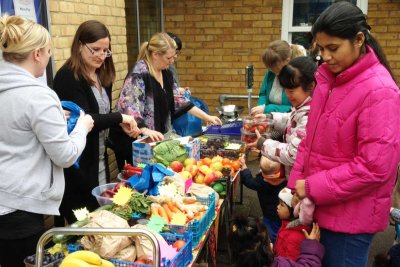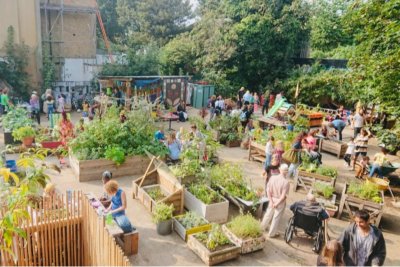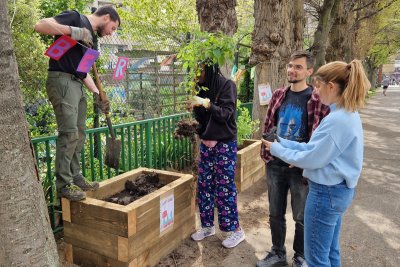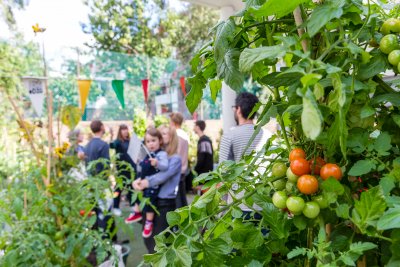News • Sustainable Food Places
Report: The value of local food partnerships, Covid and beyond
The Covid-19 pandemic, and – more recently – soaring food prices have focused attention on how local action is meeting the challenges of a fractured food system.

A new University West of England report showcases the value and achievements of Local Food Partnerships (LFPs) as they pivoted to respond to a period of national crisis. With a range of case studies from our vibrant network, this report highlights how Sustainable Food Places (SFP) members stepped up to play a vital role in the food crisis relief effort, and continue to fill the leadership gap on local food issues in the post pandemic environment.
Highlights:
- Effectiveness: LFPs tackle the fragmented and siloed operations of the local food systems. Working across complex and cross-boundary environments, LFPs are a unique type of partnership that help coordinate action on dysfunctions and opportunities for change in local food systems.
- Efficiency: LFPs encourage public, private and third sector agencies to collaborate and share resources. Examples from SFP member areas show how this partnership model provided a powerful way to create efficiencies, eliminate duplication and create innovative solutions
- Engagement: LFPs are designed to focus action on the interests of people and environment, ahead of the convenience of providers. This requires having mechanisms for consultation and co-production. LFPs are configured to engage lived experiences and to find shared visions for change.
- Equity: LFPs respond to the moral and legal case for promoting equality, diversity and inclusion through their open networks, outreach, and democratic structure. In embracing multiple voices, LFPs act as collectives working for food system leadership at the local level
Please do read and share with your networks, and we hope you find the findings as inspiring and affirming as we did.
Written and researched by Matthew Jones, Sarah Hills, and Amy Beardmore, in consultation with Sustainable Food Places members and core team between 2021-2022.
Published Monday 4 April 2022
Sustainable Food Places: The Sustainable Food Places Network helps people and places share challenges, explore practical solutions and develop best practice on key food issues, so if you are working to drive positive food change or are interested in developing a programme, please do get in touch.





